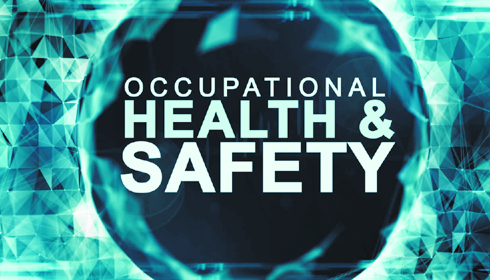
Putting Workers First: Advancing Health and Safety in Global Value Chains - Labour Dialogue 2024
The issue of occupational health and safety (OSH) in Global Value Chains (GVCs) requires immediate attention, and the Centre for Education & Communication (CEC) is taking a strong stance to address it. In collaboration with Rosa Luxemburg Stiftung South Asia, the CEC is organizing the first Labor Dialogue of 2024, aimed at tackling this pressing issue head-on.
The statistics are staggering: every year, 2.78 million workers lose their lives due to work-related accidents and illnesses, with an additional 374 million experiencing non-fatal accidents. This translates to a shocking 7,500 worker fatalities daily. The COVID-19 pandemic has only underscored the critical importance of ensuring a healthy workforce, particularly within GVCs.
Workers in GVCs face numerous challenges, including low wages, a lack of social security, limited access to healthcare, gender-based violence, and restricted freedom of association. These challenges are compounded by prevailing business practices prioritising high turnover and extended working hours at the expense of workers' well-being.
International regulations, such as the International Labour Organisation (ILO) Convention on Occupational Safety and Health (Convention 155) and the Promotional Framework for Occupational Safety and Health (Convention 187), stress the importance of providing workers with access to various health and safety measures in the workplace. These include clean drinking water, sanitary facilities, designated meal areas, childcare, health and safety officers, and social security benefits.
In the Indian context, the recent Occupational Safety, Health, and Working Conditions (OSHWC) Code seeks to align with these international conventions. However, it is essential to evaluate the OSHWC Code alongside other labour codes, considering the interconnectedness of occupational health with industrial relations, social security, and fair wages.
The Labour Dialogue aims to delve into the implications of national and global regulations for workers' health, well-being, and dignity within GVCs. It seeks to develop and implement OSH guidelines tailored to different sectors and raise awareness among workers regarding these guidelines.
Moreover, the dialogue will explore the gendered perspective of the OSH framework, acknowledging the specific health vulnerabilities experienced by women in the workforce.
As society navigates the complexities of global supply chains, prioritising workers' health and safety is not just a legal obligation but a moral imperative. The Labour Dialogue serves as a platform for stakeholders to come together, exchange ideas, and chart a path towards a safer and healthier work environment for all.